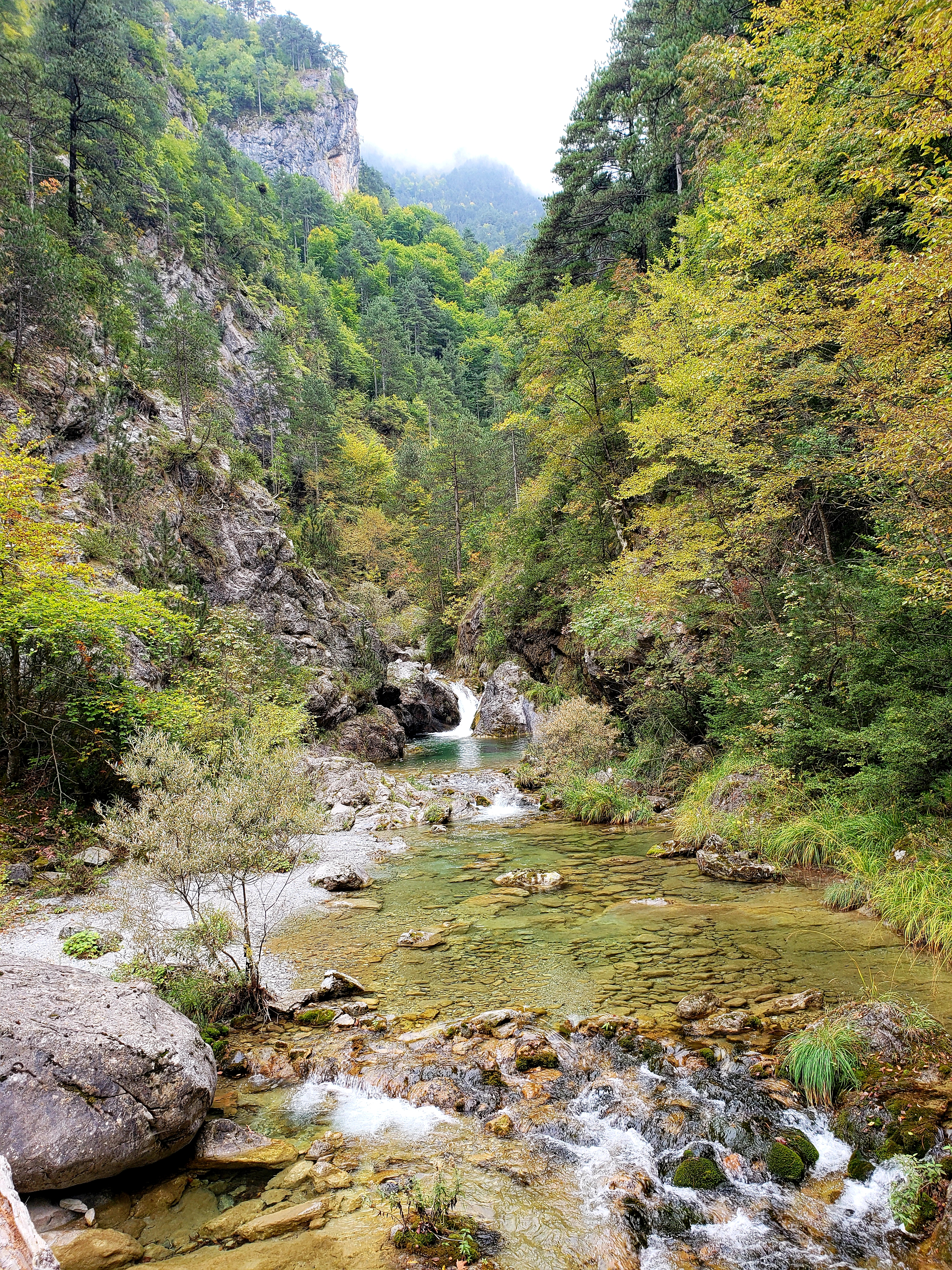
3 October to 9 October
From Sifnos, I returned to Athens for two more nights. It was a jarring adjustment from the quiet island, but a necessary stopover before heading north to discover the mainland and to see some foliage.
My destination had been prompted during my previous visit. I’d been walking on one of Athens’ main avenues when I stopped to look at a photograph displayed in a tourist office window. A structure was perched atop an immense pillar of rock. It was an extraordinary image.
Inside the office a young woman sat behind a desk looking bored. “It’s a monastery of Meteora” she said with barely a trace of a Greek accent. Although I was not interested in her proposed day-trip–it’s four hours one-way from Athens–she patiently answered my questions. The monasteries, according to her, are the most popular tourist destination in Greece. I was surprised I’d never heard of them, but made a point to get there.
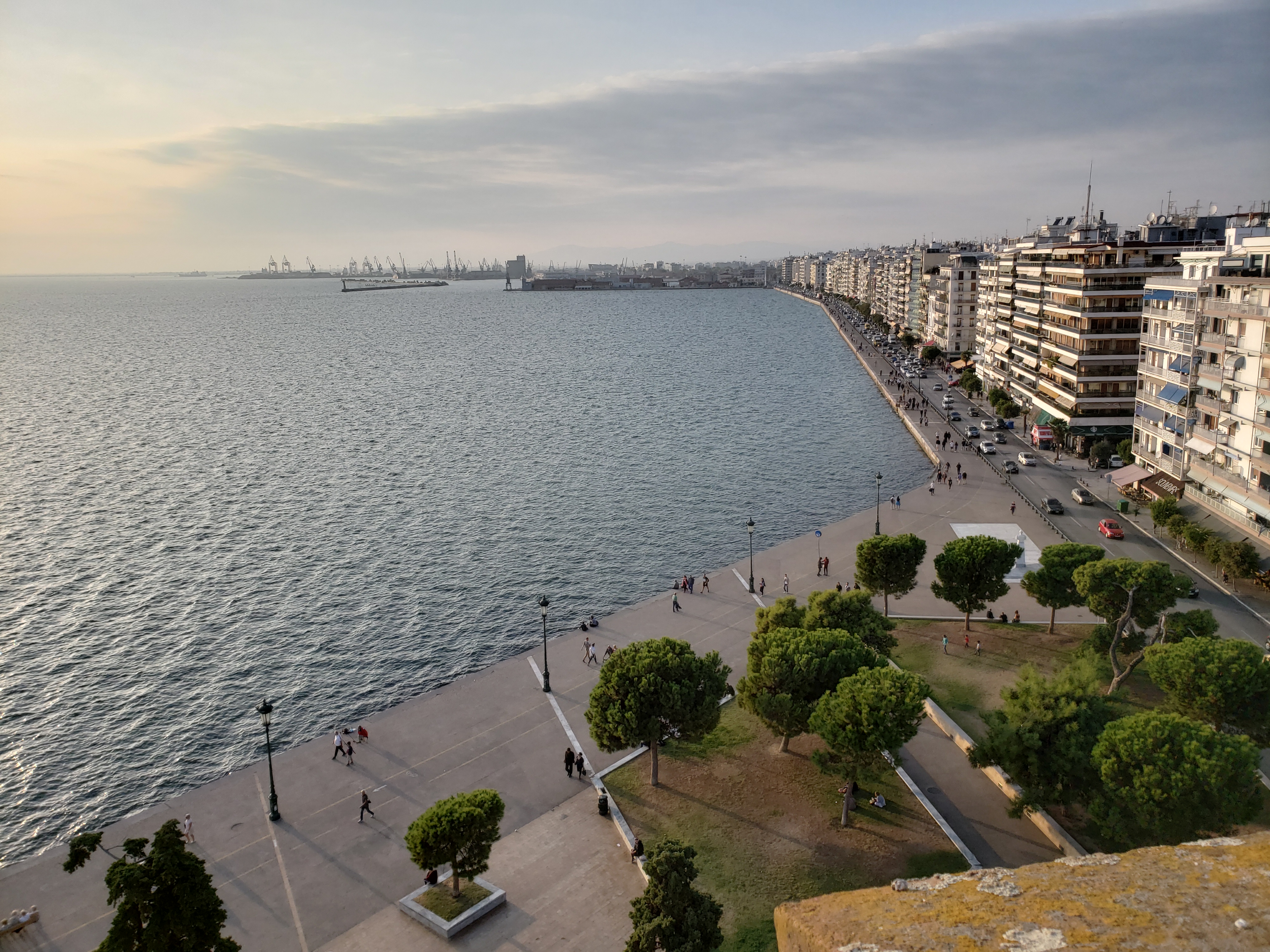
I decided to go north by way of Thessaloniki (the second most populace city in Greece.) There I would rent a car for a month and tour some of the mainland.
I’d read that a slow-train from Athens to Thessaloniki, was soon to be replaced by a less scenic fast-train. I bought a ticket the following morning at the station. Although everyone I encountered spoke English well, I made an effort to speak the few words I knew in Greek–they always seemed pleased.
My short time in Athens included a visit to a newly opened center for women refugees. The refugee crisis remains acute and I considered staying in Athens to volunteer, but the walk-in center, at least for now, would not require more than a few hours/week of my time–a convenient opportunity for those already living in Athens, but not enough to intice me into an extended stay.
Unlike the hellish refugee camps people spoke of, and discouraged me from going to, the center was clean, quiet, and welcoming. However as a day center no sleeping facilities, nor food, is provided and attendance, at least when I visited, was low. The center is designed to provide a safe place where women and their children can relax, socialize, and acquire skills for life in Europe, even though the immigration status for most is tenuous.
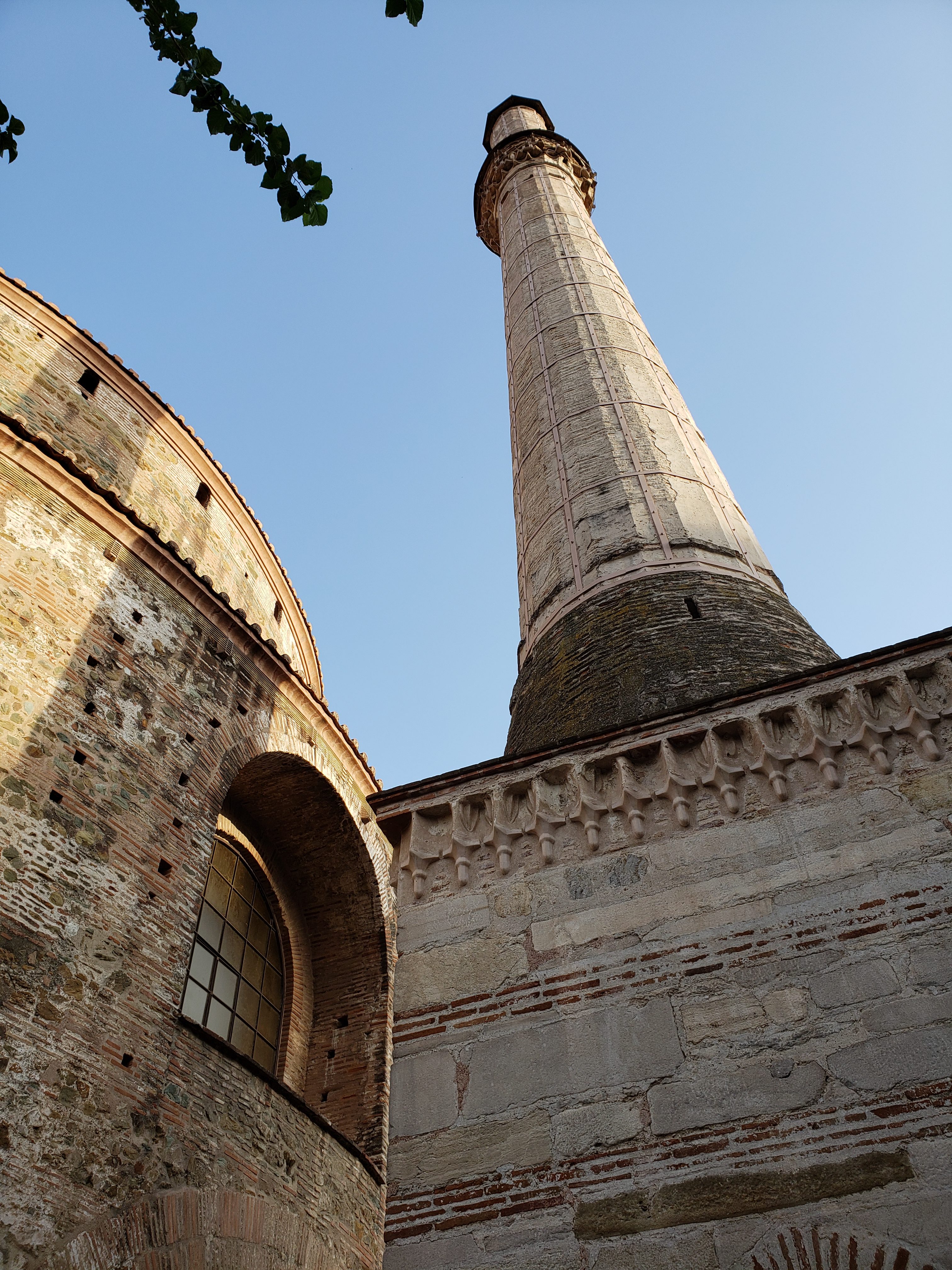
The 10:14am train from Athens was scheduled to arrive in Thessaloniki at 3:40pm. I found my reserved seat in a six-seater compartment. It was similar to the trains I’d loved and traveled in Europe decades before, except now with central air-conditioning/heating the windows did not open. I’d enjoyed standing back then in the corridors of the old trains, with most of the other passengers , taking in the views and fresh air. I had a window seat and sat with a young couple, their newborn baby, young son, his uncle, and a young man traveling alone.
The family, like me, were not Greek; I presume they came from elsewhere in the Balkans. They doted on the children, spoke softly, laughed often, and focused on each other. The slow train was slower than expected with many delays. The dining car, an amenity fading into obsolescence, was a pleasant place to pass the extra hours and watch the lovely, but surprisingly unremarkable scenery–maybe I was looking out on the wrong side.
Saying “Thessaloniki” tied my tongue–it seemed, like many Greek words, to contain an unwieldy number of syllables– but I enjoyed this city with a vibrant waterfront and noteworthy sights. Like many old cities, it endured wars, destruction, bloodshed, and tragedy. The long standing Jewish population, once the majority, was decimated during World War II: over 90% were murdered. A museum commemorating these residents was built by the small, but present Jewish community today and opened in 2001.
I spent two days wandering through the neighborhoods, visiting the “must-see sights, and finding that the city’s reputation for delicious food was justified.
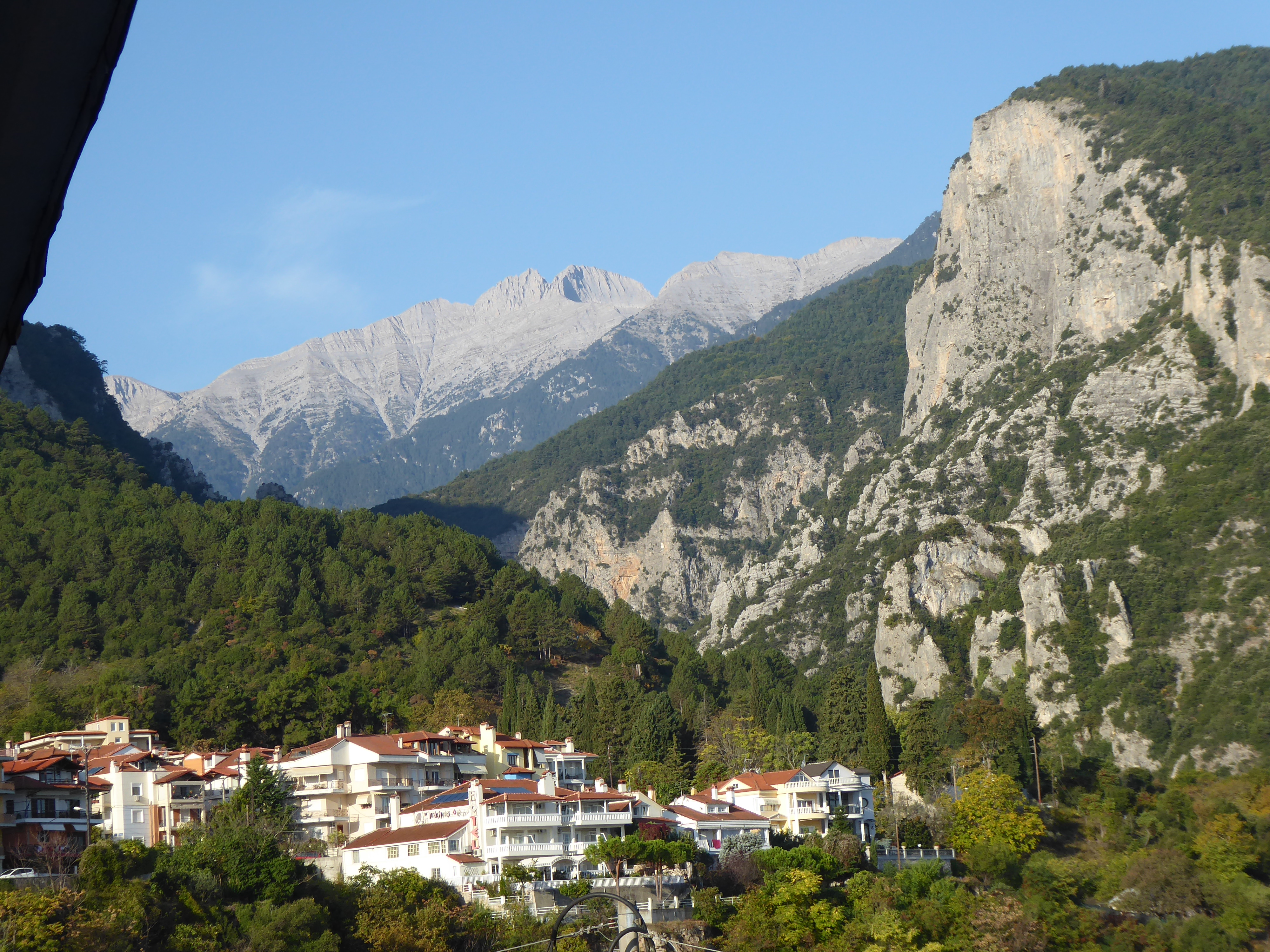
I’d never thought of Mount Olympus, of mythological renown, being an actual place, but Dina of Sifnos encouraged me to go its National Park. An hour or s away I set off from Thessaloniki in my rented car to stay in Lithohoro, a lovely town abutting the park. Many people come to hike to Mt. Olympus’ summit, but a guide is required and I preferred trails I could walk alone.
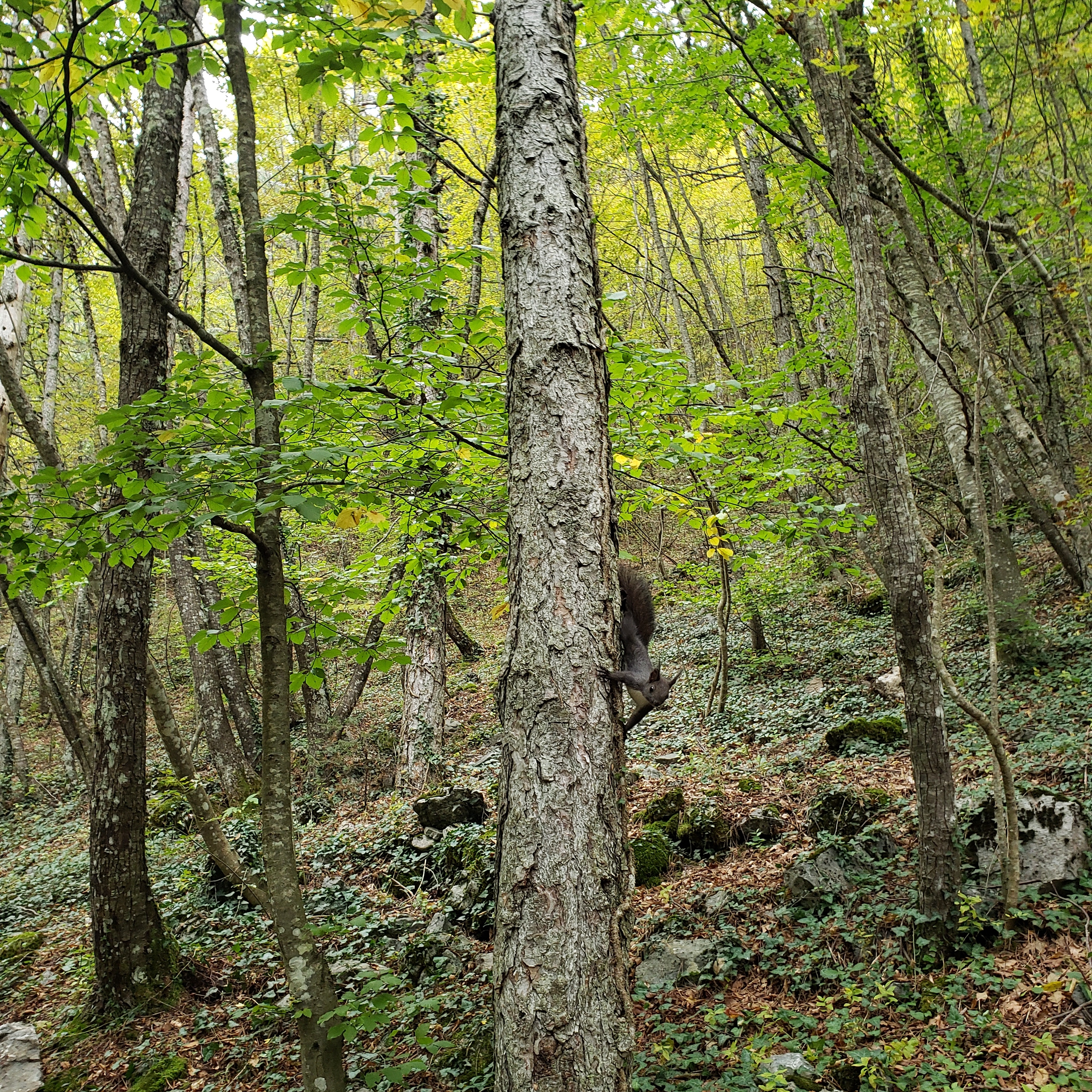
Another popular hike is in the Enipeas Canyon from Litochoro to Prionia. It encompasses a scenic section of the E4–a European trail of 10,000 kms starting in Portugal and continuing through Cyprus to Crete. The hike of 12 kms, included over 900 meters of steep inclines and descents with rocky, uneven paths. Fortunately Prionia boasts a welcoming taverna and parking lot for taxis taking hikers back to Litochoro and those with their own vehicles hiking in the area.
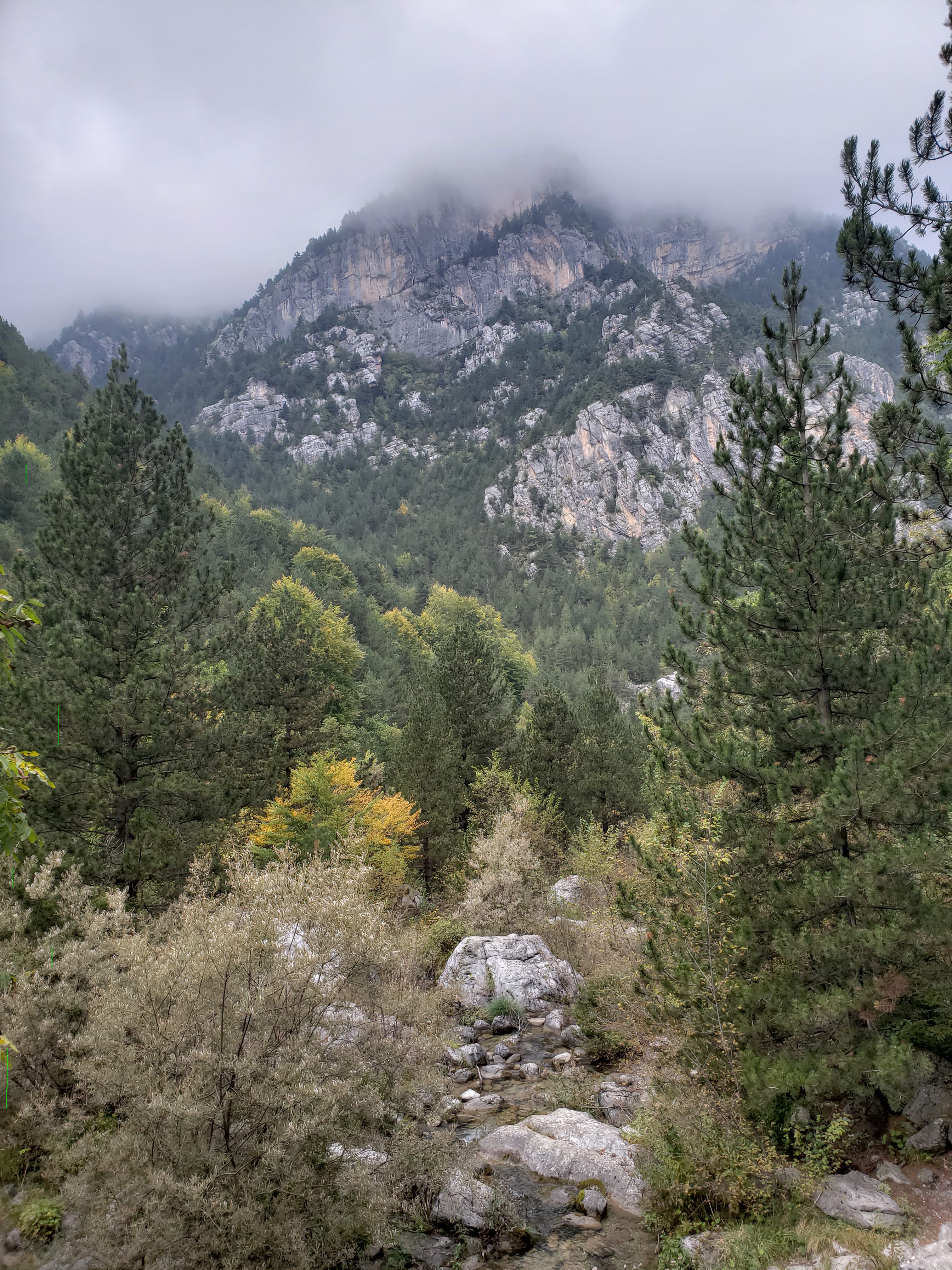
I started at 10am in sunshine, but it would drizzle throughout the day, not unwelcome while hiking uphill. The trail was well-marked–for the most part. I savored the tranquility, waterfalls, forest, wooden bridges, and striking views when the clouds cleared. The terrain was challenging, but the sounds of nature and its beauty encouraged my every step.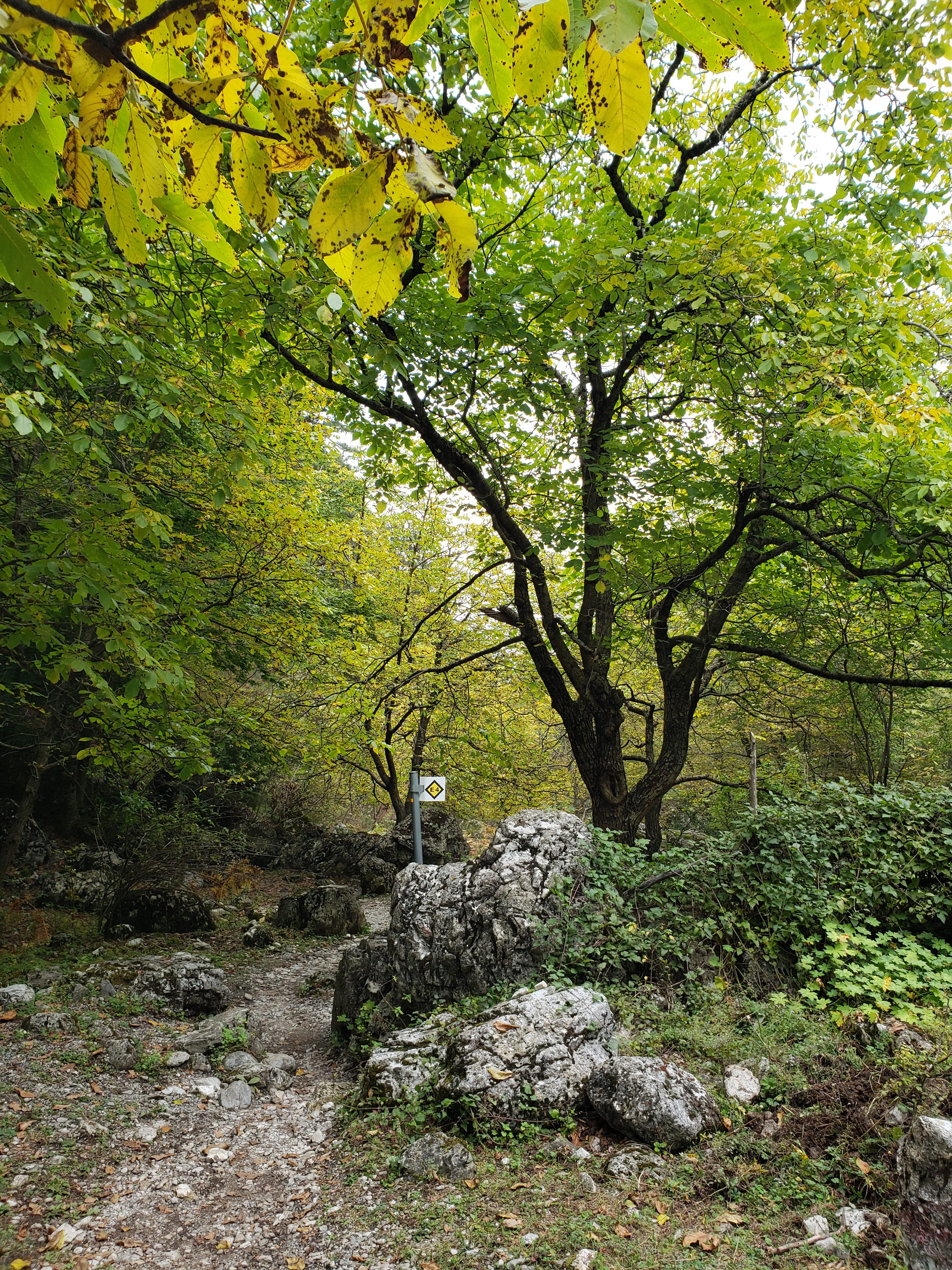
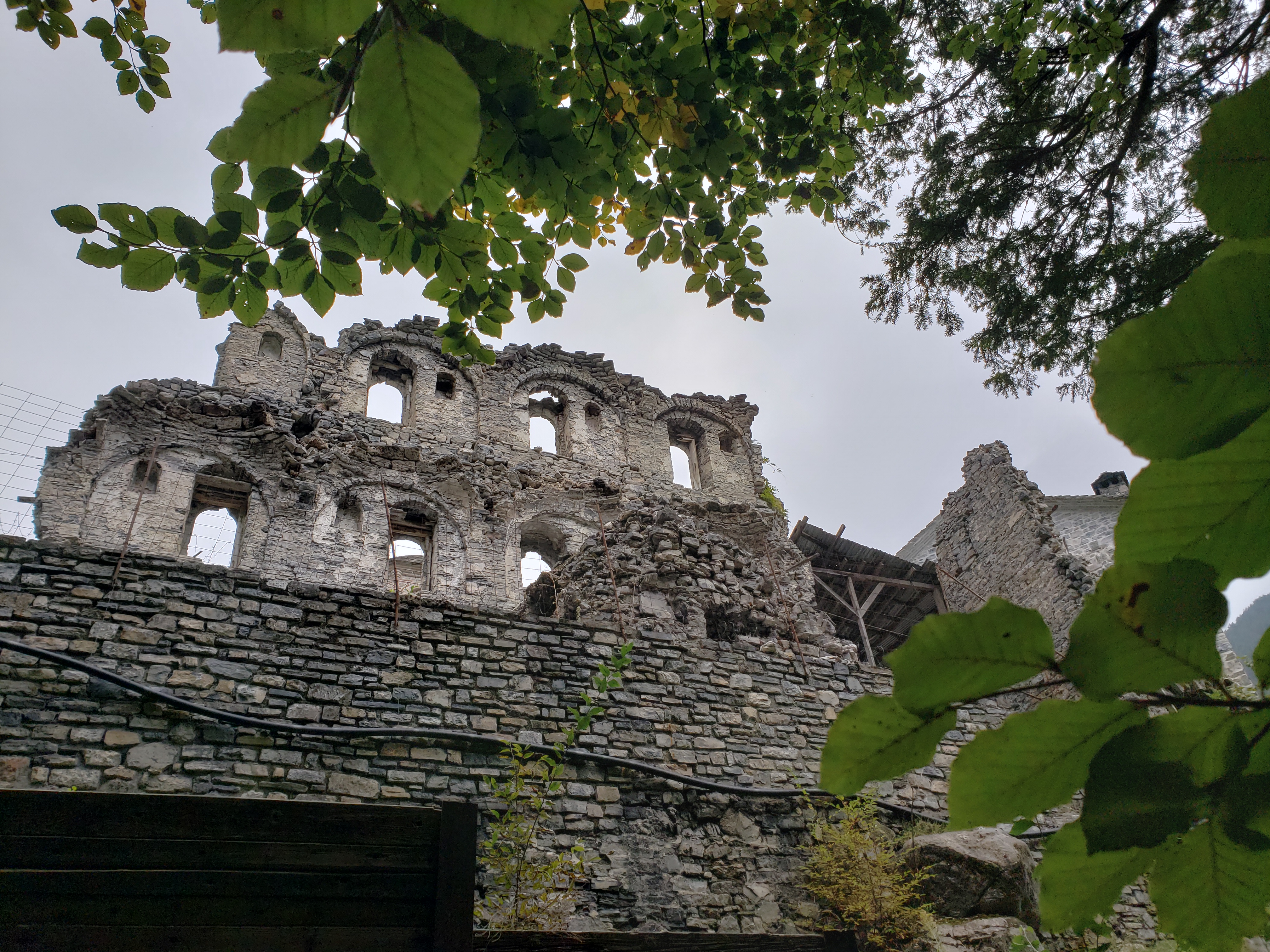

After six hours I arrived in Prionia hungry and pleasantly tired. The day before, a woman in Litochoro highly recommended the goat soup at the taverna. I’d never been tempted to eat goat before and thought I’d give it a try. Well, maybe it was the preparation or it’s an acquired taste, but the huge slab of meat on the bone with little else in the soup did not entice me. I gave it a try, but instead made the huge, lazy, one-eyed dog there extremely happy. (I had to convince him that getting up and coming over to me would be worth his while.)
None of the taxis were waiting, and getting chilly I hoped to get back to my room quickly for a hot shower and some dinner. Fortunately I met a German couple heading that way and I asked to go with them. The driver’s speed made me question my choice–these mountain roads are not the autobahn–but we did made it back quickly, and safely.
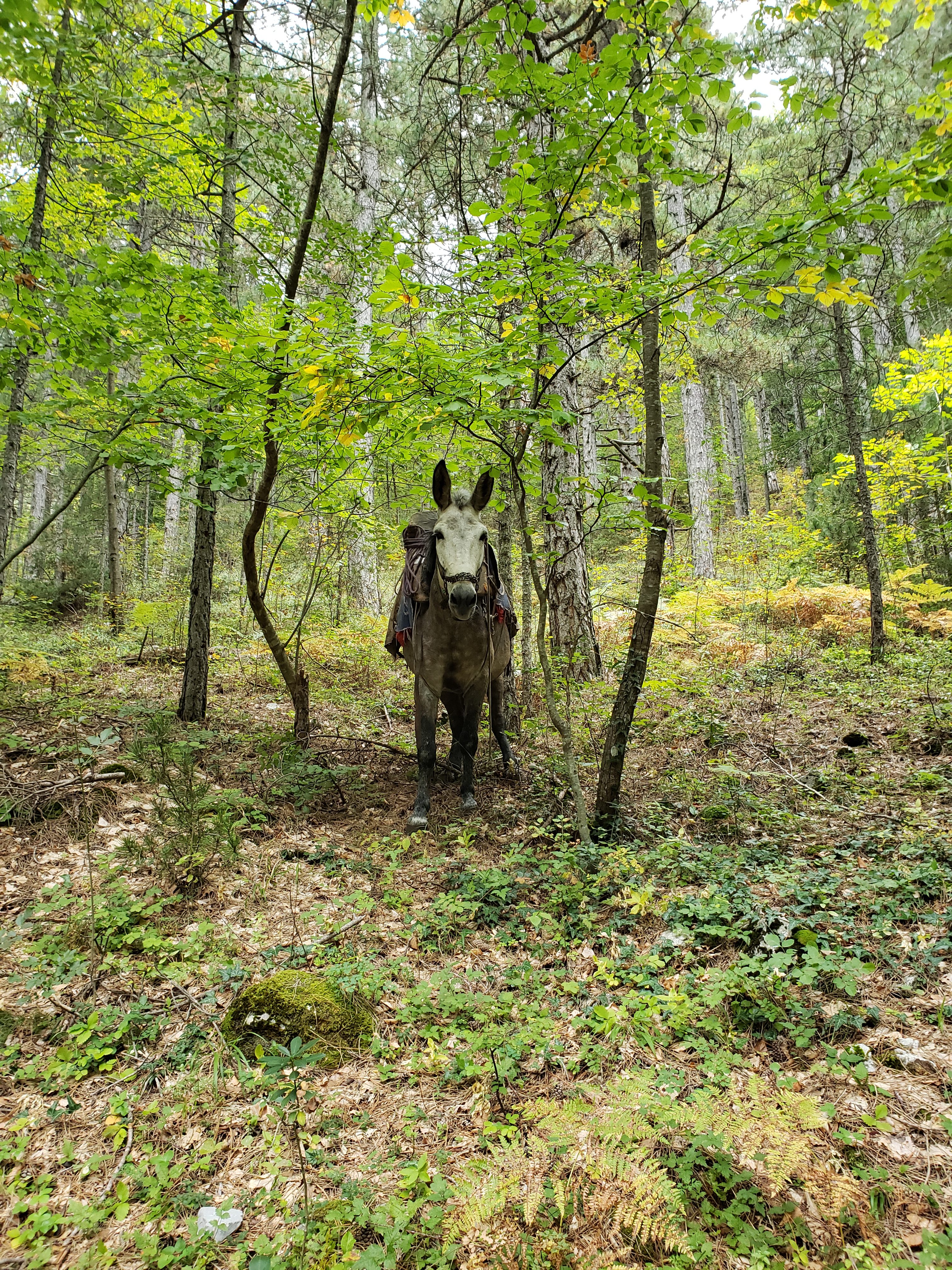
I spent the next few days taking it easy, walking around town and to nearby waterfalls. My evenings were spent chatting with some residents of Litochoro. The owners of the hotel and a sporting goods shop were particularly engaging and generous with their time. I learned about the town’s history, the Greek Civil War, and reminded of the many English words derived from Greek.
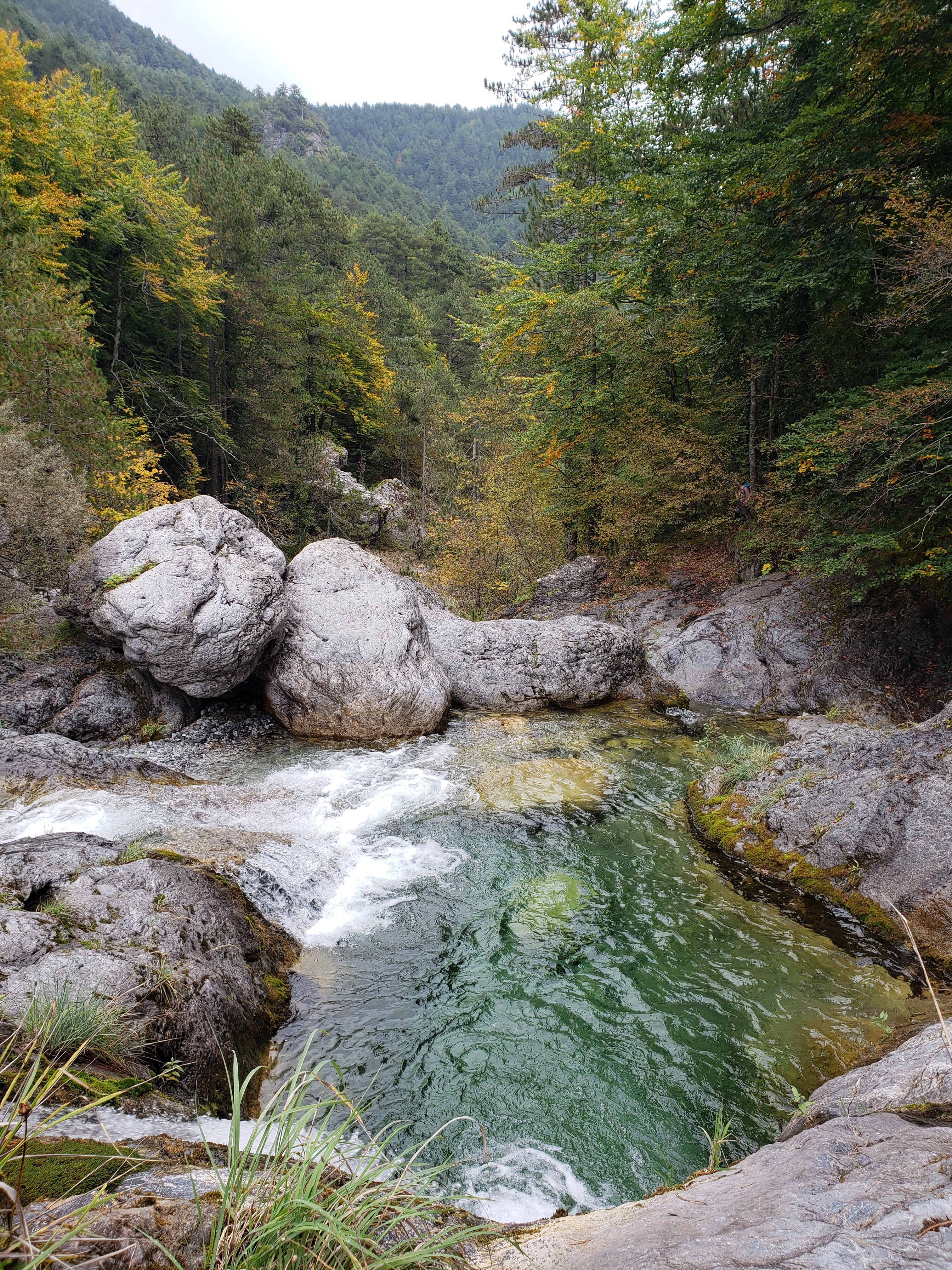
The days in Thessaloniki and Litochoro passed quickly. I left Litochoro and Mount Olympus reluctantly, but was looking forward to Meteora.